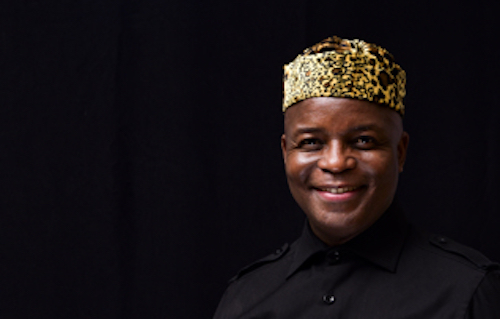Now in its 15th year, the annual Brand Africa 100 | South Africa’s Best Brands rankings has become a marketing institution.
The results revealed the ongoing dominance of global brands such as Nike (Africa’s most admired brand for the 8th consecutive year) but also documented the rise of brands such as GALXBOY and Maxhosa, which cracked the nod as the most admired African brands in South Africa. They join Bathu, recognised as Africa’s most admired apparel brand in the continental rankings.
We caught up with Brand Africa founder and chairman, Thebe Ikalafeng, to find out more about why these brands are positioned as they are, and what can be done to promote more South African and African brands.
While 68% of South Africans express strong confidence in Africa’s future, only 32% of the Top 100 most admired brands in South Africa are made in South Africa. What do you think lies behind this disconnect?
I think there’s two primary reasons. First, non-African brands have an entrenched heritage and history in the country, and consequently have built historical trust over a long time.
Second, non-African brands have the benefit of economies of scale, which has enabled them to leverage their global media and marketing budgets to build their brands globally, invest in consumer insights and innovate.
Third, non-African brands have created a perception of superior quality, reliability and aspiration due to their global reach, and influential endorsement and associations.
As a result, African consumers feel validated when using non-African brands, and only approve local brands when validated by external influencers – for example when Meghan Markle endorsed Tshepo Jeans, it catapulted the brand.
Changing this requires sustained investment in branding, visibility, and building trust in made in Africa/local.
Do you think initiatives like Proudly South African’s new ecommerce venture could help change perceptions and encourage more loyalty to homegrown brands?
Absolutely. Access and convenience are vital in shaping consumer behaviour. Proudly South African’s e-commerce initiative helps level the playing field by bringing local brands closer to the consumer. If coupled with strong storytelling and quality assurance, this platform can build emotional connection and trust, two key drivers of brand loyalty. It’s a strategic move in redefining how South Africans engage with their own brands.
‘Although global brands continue to dominate South Africa and the continent, the rise of new-generation brands signals Africa’s creative potential.’ What brands are making moves and what is making them noticeable to consumers?
We are seeing exciting growth from brands such as Bathu, Galxboy, which were most admired brands overall in South Africa in 2024 and 2025. These brands reflect Africa’s creativity, boldness, and authentic narratives – and young people taking their economic reigns.
These brands, as evident in the recent Brand Africa 100: South Africa’s best brands, are disrupting the status quo of legacy brands. What makes them stand out is their cultural relevance; they speak our languages and reflect our stories. Consumers today are increasingly drawn to brands that understand and represent them.
MTN seems to maintain its ranking over the years. What drives this telco’s success in Africa, despite some hiccups and fights with the Nigerian regulator and the fine issue?
MTN has remained resilient because of its deep-rooted presence and investment across multiple African markets. They understand the nuances of the continent and have consistently built infrastructure, services, and campaigns that resonate locally. While challenges are inevitable, MTN has shown agility in managing crises and staying focused on delivering value to its customers.
Shoprite/Checkers won the sustainability Grand Prix for South Africa. How is this award judged in terms of criteria?
The Sustainability Grand Prix recognises brands that are not only admired for their commercial success but also for their responsible leadership. We evaluated their impact across environmental stewardship, social responsibility, ethical governance, and long-term community development.
Shoprite’s initiatives from waste reduction to hunger alleviation reflect a tangible commitment to sustainability beyond marketing claims. The Grand Prix was adjudged by an expert panel based on a consumer-led short-list.
Is the sustainability aspect going to be more important in the near future considering the impacts of climate change?
Sustainability is no longer a corporate buzzword; it is a business imperative. African consumers, especially younger generations, are increasingly aware of environmental and social issues. Brands that do not evolve to address these concerns risk losing relevance. Being purpose-driven and planet-conscious is becoming a competitive differentiator.
What is the reason behind the dominance of global brands? Is it marketing or aspirations or the belief that if they’re from abroad, they’re naturally better?
It is a mix of legacy, aspiration, and perception. Global brands benefit from decades, sometimes centuries of global positioning, economies of scale, innovation and visibility. There is a lingering perception that “west is best.” However, this is slowly changing as African brands rise in visibility, quality and their advantageous cultural relevance.
Why is it so important that brands also play the role of cultural emissaries?
Brands are not just commercial entities; they are carriers of identity, pride, and culture. When African brands reflect our music, fashion, languages, and values, they help shape how the world sees us and how we see ourselves. As cultural emissaries, they tell our stories authentically and powerfully, and ultimately help shape Africa’s global image.
What is the impact of Brand Africa’s annual list on those who are recognised? Does this acknowledgement contribute to the bottom line or is it more perception, or both?
Recognition on the Brand Africa 100 list enhances both perception and performance. It affirms a brand’s relevance and builds trust among consumers. For businesses, it is a tool for benchmarking, investor confidence, and market credibility. Over time, sustained admiration translates to brand equity and bottom-line impact.
What role will Brand Africa play in the upcoming G20 meetings?
As Africa assumes a stronger voice in global economic dialogues, Brand Africa will continue advocating for a brand-led agenda for the continent. The results of the Brand Africa 100: Africa’s Best Brands indicated that 96% of the brands South Africans admire are from G20 countries.
With South Africa and the African Union as only African members, South Africa accounts for 32%, so South Africa has a very big voice in the G20 not just as a member but as primary brands. As Brand Africa, our role remains to be a trusted provider of independent insights, amplify African narratives, and ensure that Africa’s image and competitiveness are central to discussions on trade, innovation, and sustainability.
South Africa’s nation brand has taken a knock recently, particularly around the issues with the US. What should we be doing to take control of our narrative?
While that is correct, South Africa remains the #1 most admired country as indicated by South African and broadly African consumers in 2024 and 2025. As a country we need to get back to what brought us here and unify behind a clear vision and consistent values.
We need to be proactive rather than reactive in responding to attacks on our story, and deliberate in our storytelling. Nation branding is not just the government’s role; business, media and citizens must all align in projecting a united, progressive image of South Africa.
What are three most important things you have learned about Africa and our brands in the many years you’ve been conducting this research since 2011?
- On average, only 20% of the brands that Africans admire are made in Africa.
- The brands that stand out across the continent are those that have been transformative and contributed to the development of the continent: MTN and M-Pesa in teleco, Dangote in industrialisation, Ethiopian Airlines in transport. These brands have made it easy for Africans to transact, communicate, travel and live.
- In a continent where 70% are under the age of 30 and high youth unemployment, youth brands are emerging as a competitive force and challenging the established legacy brands.
Any other insights you’d like to share?
Africa’s next global brands will not emerge by accident; they will be built intentionally. We must invest in design, innovation, policy alignment, and ecosystem development. And importantly, we must believe in ourselves. Admiration starts from within.














